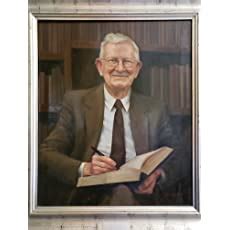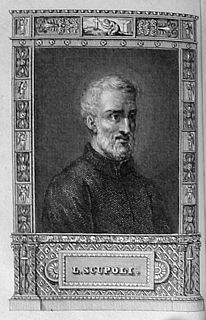A Quote by Clarence Day
Father expected a good deal of God. He didn't actually accuse God of inefficiency, but when he prayed his tone was loud and angry, like that of a dissatisfied guest in a carelessly managed hotel.
Related Quotes
An Albanian’s house is the dwelling of God and the guest.’ Of God and the guest, you see. So before it is the house of its master, it is the house of one’s guest. The guest, in an Albanian’s life, represents the supreme ethical category, more important than blood relations. One may pardon the man who spills the blood of one’s father or of one’s son, but never the blood of a guest.
Dear God, I prayed, all unafraid (as we're inclined to do), I do not need a handsome man but let him be like You; I do not need one big and strong nor yet so very tall, nor need he be some genius, or wealthy, Lord, at all; but let his head be high, dear God, and let his eye be clear, his shoulders straight, whate'er his state, whate'er his earthly sphere; and let his face have character, a ruggedness if soul, and let his whole life show, dear God, a singleness of goal; then when he comes (as he will come) with quiet eyes aglow, I'll understand that he's the man I prayed for long ago.
Religion and anger has gone together a lot, historically. My father, being very religious and angry, was trying to reconcile the ideas of love and forgiveness with damage in his own heart. We historically create God in the image of someone who will redeem us, or someone who has damaged us. A lot of my imaginations of God was a projection of my own damage because of my father. God is good but he has a lot of expectations, of which I have failed -- just like my dad. But I don't think it's truthful to create God as a projection of either our damage or our altruism.
Prayers prayed in the Spirit never die until they accomplish God's intended purpose. His answer may not be what we expected, or when we expected it, but God often provides much more abundantly than we could think or ask. He interprets our intent and either answers or stores up our prayers. Sincere prayers are never lost. Energy, time, love, and longing can be endowments that will never be wasted or go unrewarded.
The psychoanalysis of individual human beings, however, teaches us with quite special insistence that the god of each of them is formed in the likeness of his father, that his personal relation to God depends on his relation to his father in the flesh and oscillates and changes along with that relation, and that at bottom God is nothing other than an exalted father.
'Go to My brethren, and say unto them, I ascend unto My Father, and your Father, and to My God, and your God' (Jn. 20:!7). He is our Father by grace through the Spirit of adoption (Rom. 8:15), but His Father by nature on account of His divinity. Similarly, He is our God as the creator of our human nature, but His God by reason of the dispensation whereby He became man. He made these distinctions so that we might understand the difference.
What you have to understand, is your father was your model for God. If you're male and you're Christian and living in America, your father is your model for God. And if you never know your father, if your father bails out or dies or is never at home, what do you believe about God? What you end up doing is you spend your life searching for a father and God. What you have to consider is the possibility that God doesn't like you. Could be, God hates us. This is not the worst thing that can happen.
Total surrender to the will of God actually is sacrificing oneself as a burnt offering to God. The proof of this state is dying to oneself, - to one's own opinions, wishes and feelings or tastes, in order to live by Divine intellect, in conformity with the Divine will and in partaking of God. In the forefront of this endeavor is our Lord and Savior. He surrendered the whole of Himself to God the Father, and us in Himself, 'For we are members of His body, of His flesh, and of His bones' (Eph. 5:30). So let us hasten in His footsteps?
The typical atheist rebels against God as a teenager rebels against his parents. When his own desires or standards are not fulfilled in the way that he sees fit, he, in revolt, storms out of the house in denial of the Word of God and in scrutiny of a great deal of those who stand by the Word of God. The epithet 'Heavenly Father' is a grand reflection, a relation to that of human nature.
You hear a lot about God these days: God, the beneficent; God, the all-great; God, the Almighty; God, the most powerful; God, the giver of life; God, the creator of death. I mean, we're hearing about God all the time, so we better learn how to deal with it. But if we know anything about God, God is arbitrary.
I want to tell you about the God that actually showed up and healed my heart. Not the God I grew up, because the God I grew up was fundamentally, and I use the word advisedly, fundamentally untrustworthy -- schizophrenic, narcissistic, unreachable, unknowable, and my concept within which I grew up was that Jesus -- He likes me -- but He came to save me from God the Father -- who was the one who was angry and distant, and unreachable, unknowable. All of that had to come crashing down.


































